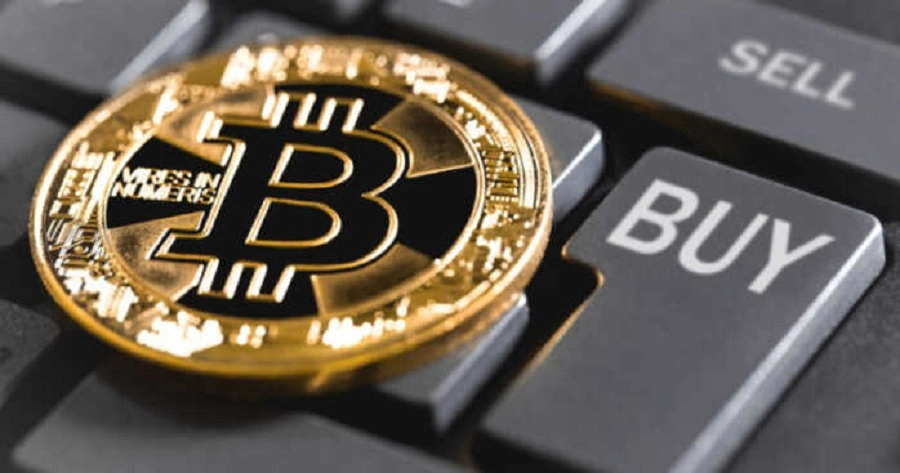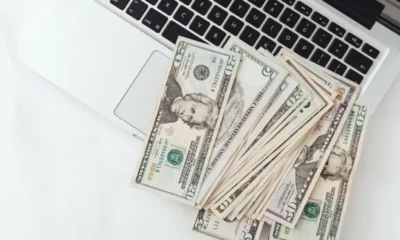
Investing in Bitcoin (BTCUSD) can seem complicated, but all you need is an account at an exchange or service, and safe storage practices.
If you are using a Know Your Clients platform, you’ll need a cryptocurrency exchange account, personal identification documents, a method of payment, and a personal wallet outside the exchange account.
Bitcoin can be purchased with bank accounts, debit cards, and credit cards, as well as via P2P exchanges and specialized ATMs.
Key takeaways
1.Due to its finite supply and function as both a store of value and a payment system, Bitcoin has a great deal of value.
2.Bitcoin wallets and exchange accounts can be compromised, so it’s important to practice proper storage and security measures.
3.Bitcoin can be purchased through Bitcoin Exchange such as BTCC, PayPal, and Robinhood.
The steps you need to take in order to buy bitcoins
Step 1: Decide which crypto trading service or venue to use
Exchanges provide a wide range of features and more cryptocurrencies for trading, enabling investors to buy, sell, and hold cryptocurrencies, and users can withdraw the cryptocurrencies to their online wallets for safekeeping.
Cryptocurrency exchanges come in many forms. Some of them allow users to remain anonymous and are decentralized and do not require users to provide personal information to the exchange. An anonymous exchange can help bring certain demographic groups into the mainstream economy, such as refugees or people who live in countries without adequate infrastructure for government credit and banking.
There are several popular exchanges that are not decentralized and follow laws that require users to submit identifying documentation before they are able to trade. These BTC Exchanges include names like BTCC, Kraken, Gemini, FTX, and Binance that offer Bitcoin and a growing number of altcoins.
In terms of altcoin choice, Binance caters to the more advanced trader, offering a wider selection of altcoins and different trading functionality. BTCC, a fast-growing crypto exchange that has garnered a multibillion-dollar valuation, offers a limited number of altcoins to U.S. investors6.
Step 2: Connect Your Exchange to a Payment Option
You will need to provide personal identification, such as a driver’s license or Social Security card, as well as details about your employer and source of funds.
In most exchanges, you can connect either your bank account or your debit or credit card. Although a credit card can be used to purchase cryptocurrency, it is not recommended.
The volatility of cryptocurrency prices combined with credit card interest could result in an increase in the overall cost of purchasing a coin. Bitcoin is legal in the United States, however some banks may question or even block deposits to crypto-related sites.
Exchanges also charge transaction fees for deposits made with a bank account, debit card, or credit card.
Step 3: Place an Order
In recent years, cryptocurrency exchanges have evolved to mimic the same level of features as their counterparts in the stock market. Crypto exchanges today offer many different types of orders and ways to invest. Most crypto exchanges offer both market orders and limit orders, as well as stop-loss orders.
Order types offered by BTCC include market, limit, stop-loss, stop-limit, take-profit, and take-profit limit orders.You can also set up recurring investments on exchanges, which allow you to dollar-cost average into your investments of choice. On BTCC, for example, you can set recurring purchases every day, week, or month.
Step 4: Safe Storage
Cryptocurrency and Bitcoin wallets are a way to store digital assets more securely. Keeping cryptocurrency outside of exchanges and in a personal wallet ensures that investors have control of the private key to the funds. Exchange wallets are available, but they are not recommended for long-term or large crypto holdings.
Related posts:

Categories
- Apps (1)
- Automotive (23)
- Beauty (7)
- Business (117)
- Celebrities (2)
- Digital Marketing (21)
- Ecommerce (1)
- Education (18)
- Entertainment (25)
- Events (6)
- Features (4)
- Fitness (10)
- Food (1)
- Forex & Crypto (15)
- General (105)
- Health (48)
- House (61)
- Lifestyle (48)
- Marketing (8)
- Parenting (3)
- Pets (10)
- Real Estate (7)
- Safety and Security (11)
- Social Media (20)
- Sports (96)
- Technology (67)
- Travel (22)



















